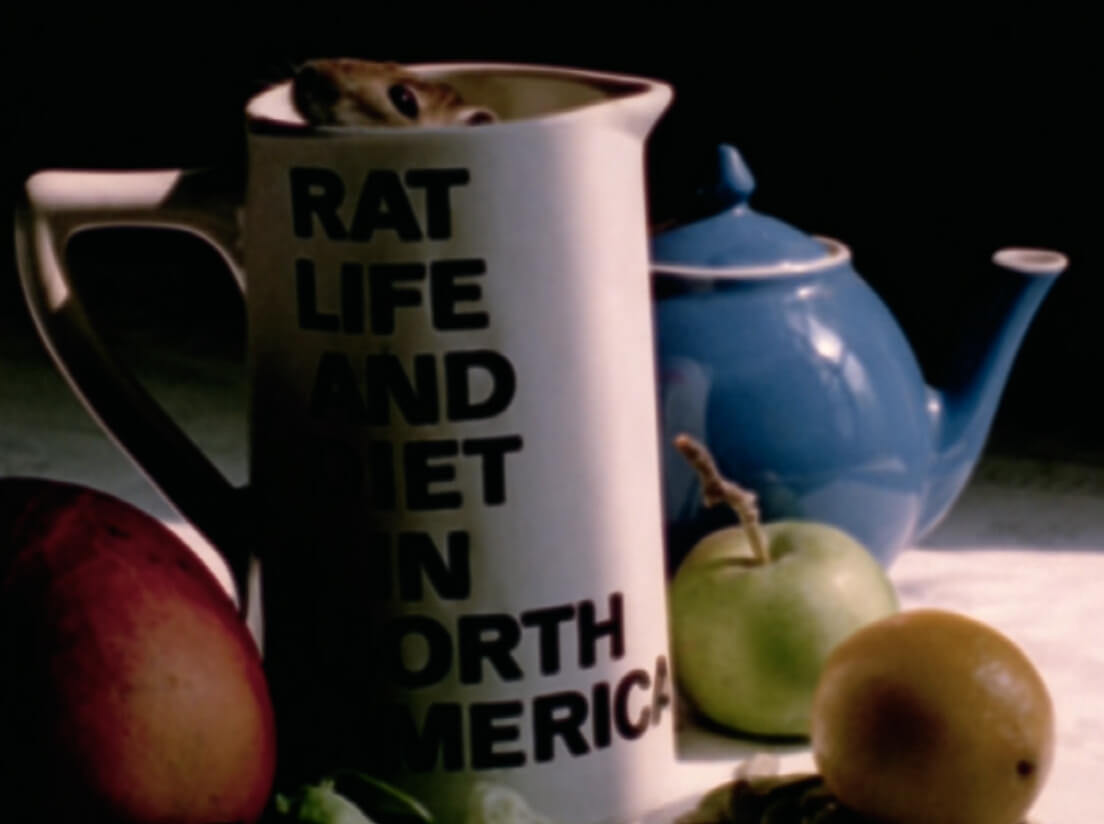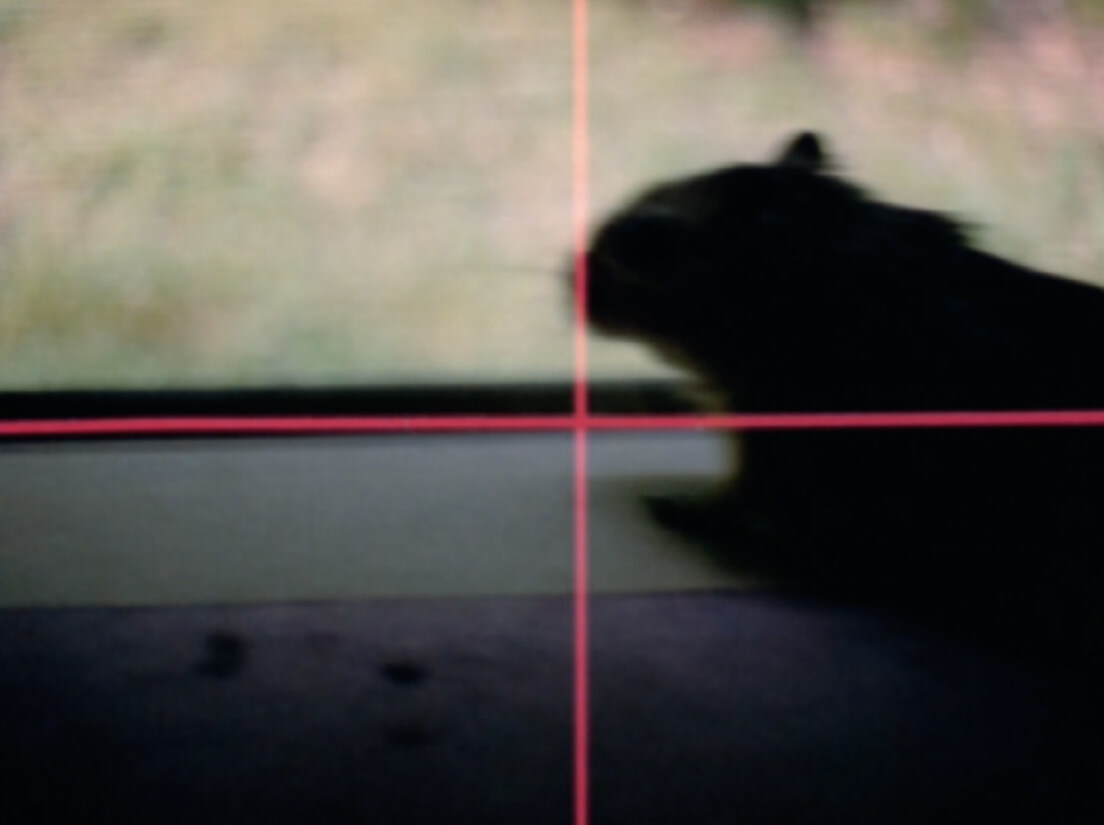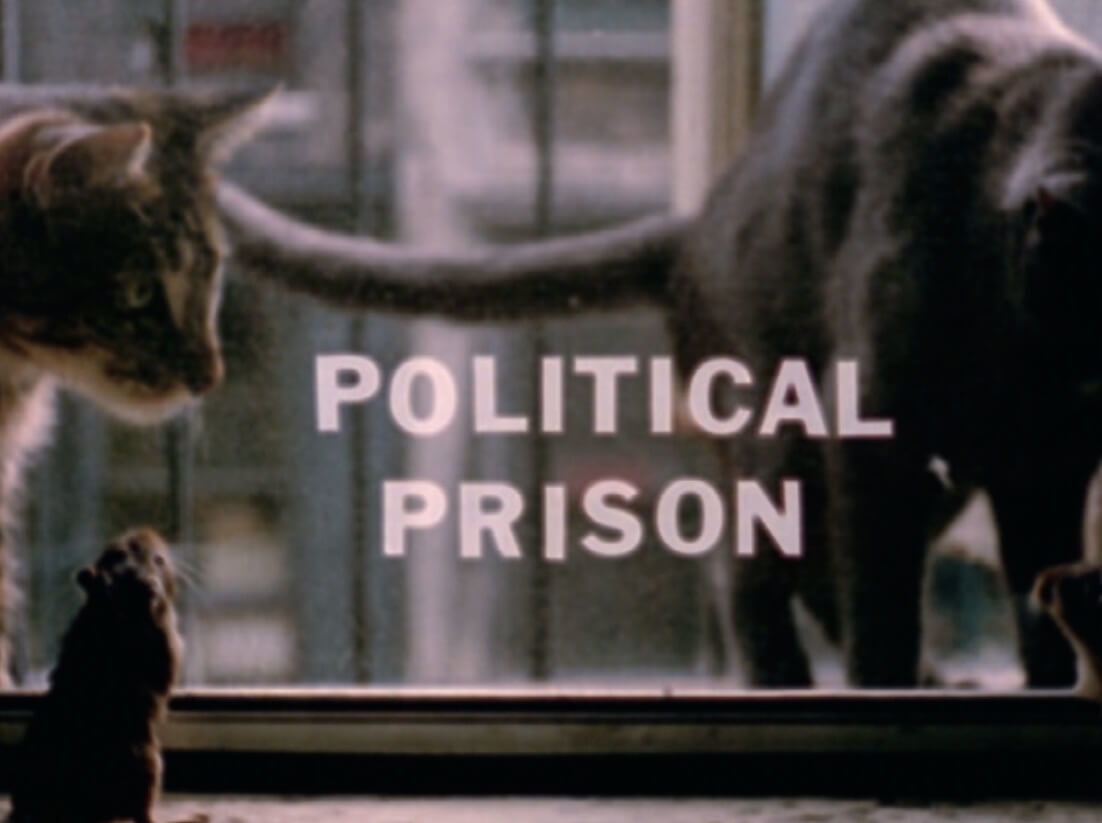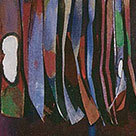Rat Life and Diet in North America 1968

Joyce Wieland, Rat Life and Diet in North America, 1968
16mm film, colour, sound, 14 min. 30 sec.
National Gallery of Canada, Ottawa
Rat Life and Diet in North America is a short film that tells a story about rats (actually pet gerbils) held as political prisoners in the United States (their jailer a cat), who make a heroic escape to Canada. Although this narrative is recounted through wryly worded intertitles, Wieland’s film nonetheless conveys a sense of menace and urgency. For these protagonists “Canada” becomes a utopian destination, promising abundance, pleasure, and peace. The film was created in 1968, a time of international student protests against the military and capitalist establishments, the rise of the New Left, and worldwide demonstrations against the Vietnam War; many young American men were fleeing to Canada to avoid being drafted into the military.


This is one of Wieland’s most admired films. Jonas Mekas (b. 1922), a leading figure on the American experimental film scene, writes that Rat Life and Diet in North America “may be about the best (or richest) political movie around.” Although Mekas uses the term “movie,” this is clearly an experimental project that plays with cinematic conventions while taking advantage of a typical movie audience’s willingness to identify with characters on the run, lusting for freedom.
With this work Wieland updates the animal fable found in many cultural traditions, where the misadventures of animals are understood as moral or political allegory. In Rat Life and Diet in North America, the act of crossing the Canada-U.S. border is construed in political terms. Somehow the sight of rodent escapees on Canadian soil, happily munching on fruit and flowers, stands in for the desires of a peace-loving, anti-war, countercultural generation and the determination to forge an alternative to the dominant American ideology.

 About the Author
About the Author
 More Online Art Books
More Online Art Books
 Acknowledgements
Acknowledgements